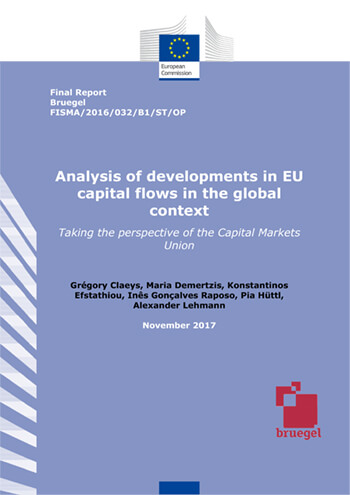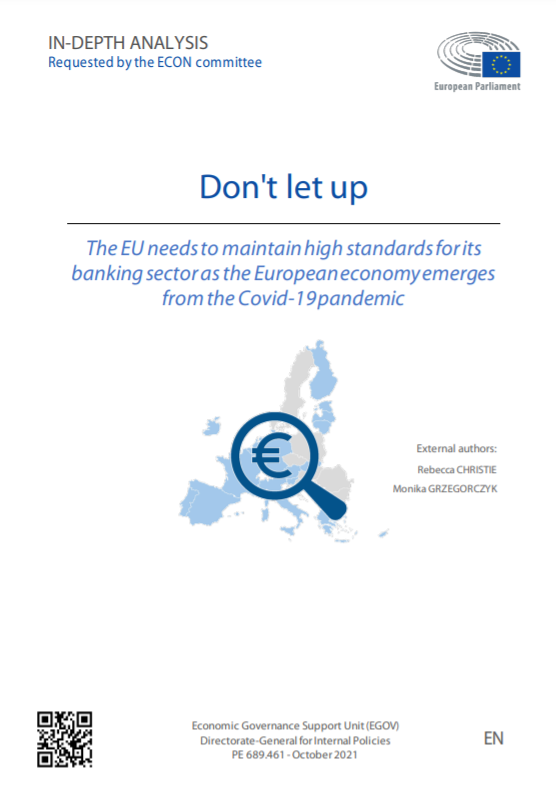External Publication
Analysis of development in EU capital flows in the global context
The monitoring and analysis of capital movements is essential for policymakers, given that capital flows can have welfare implications. This report, commissioned by the European Commission’s Directorate-General for Financial Stability, Financial Services and Capital Markets Union, aims to analyse capital movements in the European Union in a global context.
This material was originally published in a study commissioned by the European Commission’s Directorate-General for Financial Stability, Financial Services and Capital Markets Union. The opinions expressed in this document are the sole responsibility of the authors and do not necessarily represent the official position of the European Commission. The study is available on the European Commission’s webpage. ©European Union, 2017
The aim of this report is to analyse capital movements in the European Union in a global context. The monitoring and analysis of capital movements is essential for policymakers, given that capital flows can have welfare implications. Free movement of capital can enhance welfare if it channels savings towards productive use, but in crisis times, reliance on capital flows can also be a source of vulnerability if those flows transmit shocks across borders and disrupt local financial systems, with far-reaching spillovers into the real economy.
The first two sections are devoted to the monitoring of developments in international capital flows, cross-border financial positions and exchange rates and an analysis of global capital flows.
Section 2 presents trends from a global perspective, focusing on the large economies and groups of countries that are decisive for the overall picture. The authors combine up-to-date evidence from balance-of-payments statistics concerning transactions and stocks of financial assets with an analysis of policy developments and current events. Special attention is paid to potential repercussions from major recent political events, such as the UK’s Brexit referendum and the US presidential election, to the effects of monetary policy in various jurisdictions.
Patterns in the banking sector are analysed, with a comparison of countries in terms of their openness to capital flows, using established indicators of financial restrictions and focus on the evolution of Chinese FDI in the EU in recent years.
Section 3 focuses on Europe. Continuing to focus on the euro area because of its unique characteristics, the authors also pay more attention to non-euro area EU countries. However, instead of reporting data for all 28 EU Member States, they combine countries into five groups (euro-area creditors, the Benelux countries, euro-area debtors, northern Europe, and central and eastern Europe) to facilitate the recognition of key tendencies across the EU. This research also show data separately for France and Italy, which have specific characteristics that make them difficult to group with other countries. The authors analyse the different capital flow patterns and developments in international investment positions, including their compositions.
Finally, section 4 presents the results of our in-depth analysis, which this year focuses on the resolution of non-performing loans (NPLs), in particular on the development of secondary markets for distressed assets in the EU. The main motive behind this study is the fact that the EU banking sector currently needs to address a €1 trillion stock of NPLs. This type of secondary market for loans is currently under-developed compared to the size of the NPL problem in Europe, and also compared to other jurisdictions. Developing a market for asset transfers is therefore essential to respond to this immediate priority of working out distressed loans. Such an initiative would also contribute to a broader re-balancing between banks and capital markets that is necessary in Europe.















